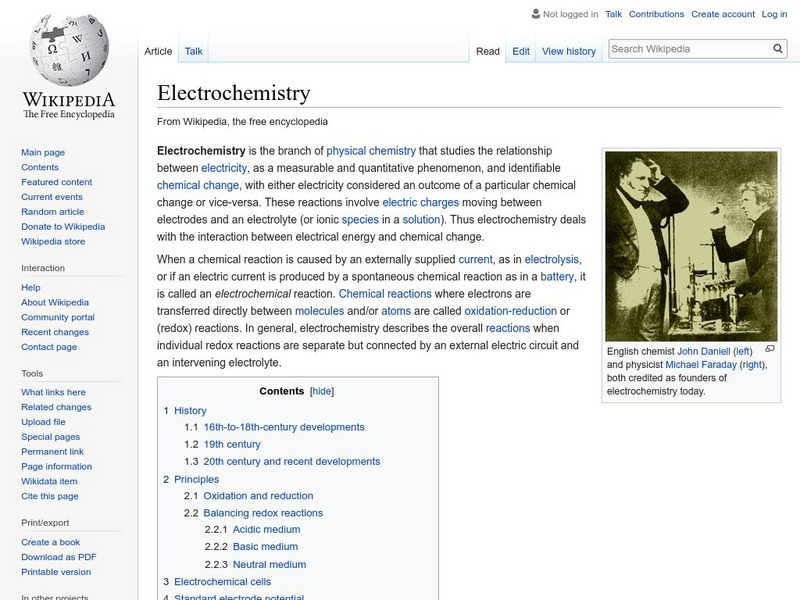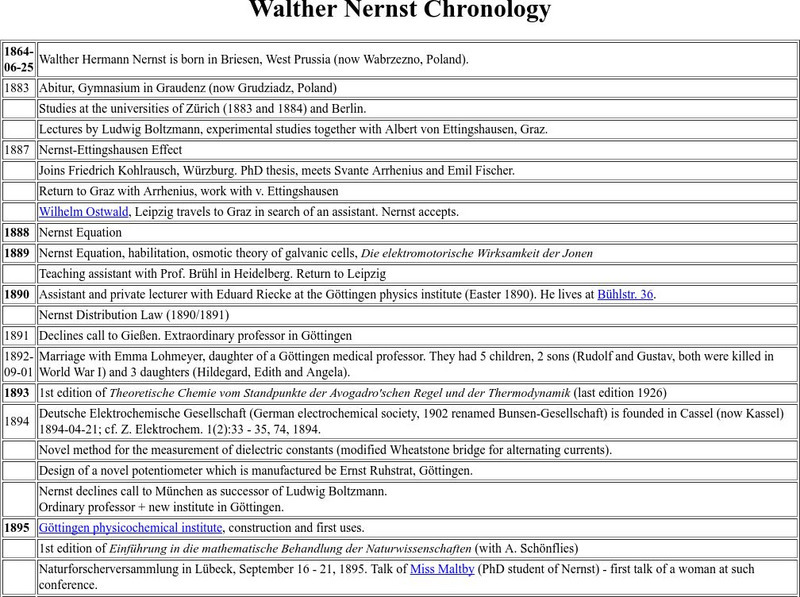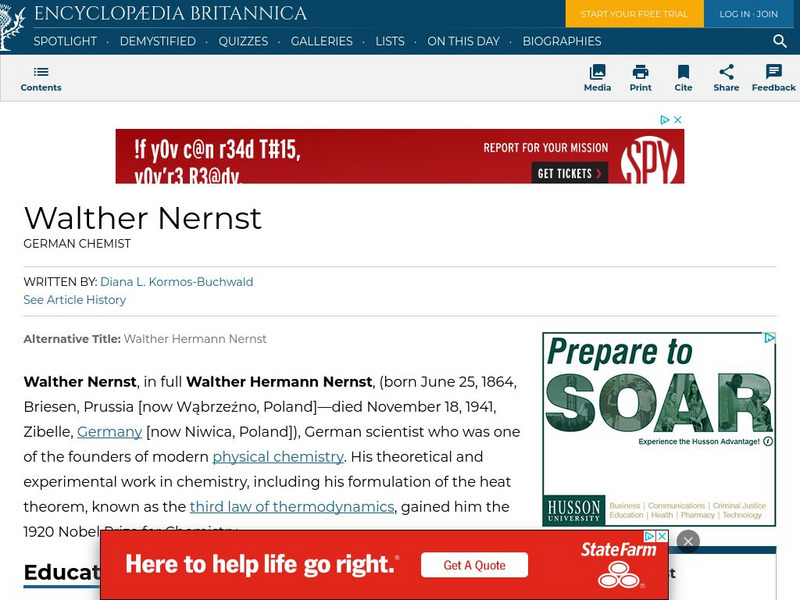Science and Mathematics Initiative for Learning Enhancement (SMILE)
Smile: Electrochemistry
A teacher lesson plan which could be easily converted into an idea for a student project or presentation. This page describes activities in which the interconversion of chemical and electrical energy are investigated. Complete activity...
Wikimedia
Wikipedia: Electrochemistry
This site from Wikipedia enyclopedia provides this discussion over electrochemistry details what the oxidation state of an ion is; what oxidation and reduction is; what redox reactions are; and the difference between spontaneous and...
Other
Walther Nernst Chronology
Walther Nernst (1846-1941) discovered the Third Law of Thermodynamics and won a Nobel Price in 1921 for his work in thermochemistry.
Other
Umea University: The Analytical Chemistry Springboard
This site provides links to pages with information and techniques on analytical chemistry.
Other
Case Western Reserve Univ.: Electrochemistry Dictionary
Dictionary containing definitions of words and phrases used in electrochemistry.
Simon Fraser University
Chem1 Virtual Textbook: Thermodynamics of Galvanic Cells
As part of the General Chemistry Virtual Textbook, this site examines a variety of topics related to electrochemistry and thermodynamics. This site specifically addresses galvanic cells and potential difference.
Other
Nmsea: Electrolysis: Obtaining Hydrogen From Water
The New Mexico Solar Energy Association provides an article entitled, "Electrolysis: obtaining hydrogen from water - the basis for a solar-hydrogen economy". The article is medium size in length with pictures and charts throughout to help.
Encyclopedia Britannica
Encyclopedia Britannica: Walther Nernst
This site from Britannica Guide to the Nobel Prizes provides a good overview of Walther's (1864-1941 CE) life, focusing exclusively on his scientific endeavours.








